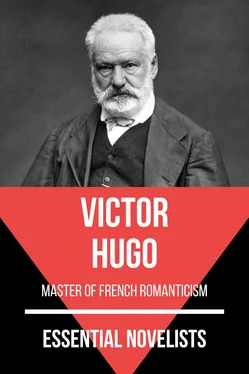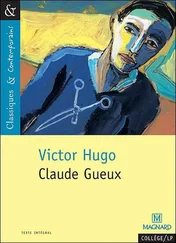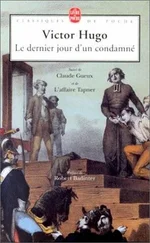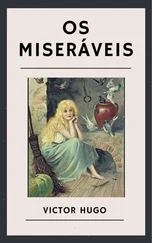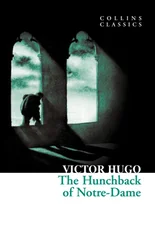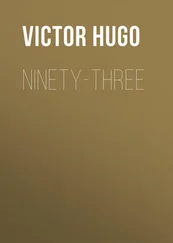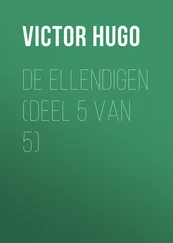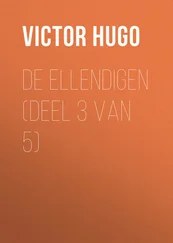This is a sad thing to say; after having judged society, which had caused his unhappiness, he judged Providence, which had made society, and he condemned it also.
Thus during nineteen years of torture and slavery, this soul mounted and at the same time fell. Light entered it on one side, and darkness on the other.
Jean Valjean had not, as we have seen, an evil nature. He was still good when he arrived at the galleys. He there condemned society, and felt that he was becoming wicked; he there condemned Providence, and was conscious that he was becoming impious.
It is difficult not to indulge in meditation at this point.
Does human nature thus change utterly and from top to bottom? Can the man created good by God be rendered wicked by man? Can the soul be completely made over by fate, and become evil, fate being evil? Can the heart become misshapen and contract incurable deformities and infirmities under the oppression of a disproportionate unhappiness, as the vertebral column beneath too low a vault? Is there not in every human soul, was there not in the soul of Jean Valjean in particular, a first spark, a divine element, incorruptible in this world, immortal in the other, which good can develop, fan, ignite, and make to glow with splendor, and which evil can never wholly extinguish?
Grave and obscure questions, to the last of which every physiologist would probably have responded no, and that without hesitation, had he beheld at Toulon, during the hours of repose, which were for Jean Valjean hours of reverie, this gloomy galley-slave, seated with folded arms upon the bar of some capstan, with the end of his chain thrust into his pocket to prevent its dragging, serious, silent, and thoughtful, a pariah of the laws which regarded the man with wrath, condemned by civilization, and regarding heaven with severity.
Certainly,—and we make no attempt to dissimulate the fact,—the observing physiologist would have beheld an irremediable misery; he would, perchance, have pitied this sick man, of the law’s making; but he would not have even essayed any treatment; he would have turned aside his gaze from the caverns of which he would have caught a glimpse within this soul, and, like Dante at the portals of hell, he would have effaced from this existence the word which the finger of God has, nevertheless, inscribed upon the brow of every man,—hope.
Was this state of his soul, which we have attempted to analyze, as perfectly clear to Jean Valjean as we have tried to render it for those who read us? Did Jean Valjean distinctly perceive, after their formation, and had he seen distinctly during the process of their formation, all the elements of which his moral misery was composed? Had this rough and unlettered man gathered a perfectly clear perception of the succession of ideas through which he had, by degrees, mounted and descended to the lugubrious aspects which had, for so many years, formed the inner horizon of his spirit? Was he conscious of all that passed within him, and of all that was working there? That is something which we do not presume to state; it is something which we do not even believe. There was too much ignorance in Jean Valjean, even after his misfortune, to prevent much vagueness from still lingering there. At times he did not rightly know himself what he felt. Jean Valjean was in the shadows; he suffered in the shadows; he hated in the shadows; one might have said that he hated in advance of himself. He dwelt habitually in this shadow, feeling his way like a blind man and a dreamer. Only, at intervals, there suddenly came to him, from without and from within, an access of wrath, a surcharge of suffering, a livid and rapid flash which illuminated his whole soul, and caused to appear abruptly all around him, in front, behind, amid the gleams of a frightful light, the hideous precipices and the sombre perspective of his destiny.
The flash passed, the night closed in again; and where was he? He no longer knew. The peculiarity of pains of this nature, in which that which is pitiless—that is to say, that which is brutalizing—predominates, is to transform a man, little by little, by a sort of stupid transfiguration, into a wild beast; sometimes into a ferocious beast.
Jean Valjean’s successive and obstinate attempts at escape would alone suffice to prove this strange working of the law upon the human soul. Jean Valjean would have renewed these attempts, utterly useless and foolish as they were, as often as the opportunity had presented itself, without reflecting for an instant on the result, nor on the experiences which he had already gone through. He escaped impetuously, like the wolf who finds his cage open. Instinct said to him, “Flee!” Reason would have said, “Remain!” But in the presence of so violent a temptation, reason vanished; nothing remained but instinct. The beast alone acted. When he was recaptured, the fresh severities inflicted on him only served to render him still more wild.
One detail, which we must not omit, is that he possessed a physical strength which was not approached by a single one of the denizens of the galleys. At work, at paying out a cable or winding up a capstan, Jean Valjean was worth four men. He sometimes lifted and sustained enormous weights on his back; and when the occasion demanded it, he replaced that implement which is called a jack-screw, and was formerly called orgueil [pride], whence, we may remark in passing, is derived the name of the Rue Montorgueil, near the Halles [Fishmarket] in Paris. His comrades had nicknamed him Jean the Jack-screw. Once, when they were repairing the balcony of the town-hall at Toulon, one of those admirable caryatids of Puget, which support the balcony, became loosened, and was on the point of falling. Jean Valjean, who was present, supported the caryatid with his shoulder, and gave the workmen time to arrive.
His suppleness even exceeded his strength. Certain convicts who were forever dreaming of escape, ended by making a veritable science of force and skill combined. It is the science of muscles. An entire system of mysterious statics is daily practised by prisoners, men who are forever envious of the flies and birds. To climb a vertical surface, and to find points of support where hardly a projection was visible, was play to Jean Valjean. An angle of the wall being given, with the tension of his back and legs, with his elbows and his heels fitted into the unevenness of the stone, he raised himself as if by magic to the third story. He sometimes mounted thus even to the roof of the galley prison.
He spoke but little. He laughed not at all. An excessive emotion was required to wring from him, once or twice a year, that lugubrious laugh of the convict, which is like the echo of the laugh of a demon. To all appearance, he seemed to be occupied in the constant contemplation of something terrible.
He was absorbed, in fact.
Athwart the unhealthy perceptions of an incomplete nature and a crushed intelligence, he was confusedly conscious that some monstrous thing was resting on him. In that obscure and wan shadow within which he crawled, each time that he turned his neck and essayed to raise his glance, he perceived with terror, mingled with rage, a sort of frightful accumulation of things, collecting and mounting above him, beyond the range of his vision,—laws, prejudices, men, and deeds,—whose outlines escaped him, whose mass terrified him, and which was nothing else than that prodigious pyramid which we call civilization. He distinguished, here and there in that swarming and formless mass, now near him, now afar off and on inaccessible table-lands, some group, some detail, vividly illuminated; here the galley-sergeant and his cudgel; there the gendarme and his sword; yonder the mitred archbishop; away at the top, like a sort of sun, the Emperor, crowned and dazzling. It seemed to him that these distant splendors, far from dissipating his night, rendered it more funereal and more black. All this—laws, prejudices, deeds, men, things—went and came above him, over his head, in accordance with the complicated and mysterious movement which God imparts to civilization, walking over him and crushing him with I know not what peacefulness in its cruelty and inexorability in its indifference. Souls which have fallen to the bottom of all possible misfortune, unhappy men lost in the lowest of those limbos at which no one any longer looks, the reproved of the law, feel the whole weight of this human society, so formidable for him who is without, so frightful for him who is beneath, resting upon their heads.
Читать дальше
